In intent, commitment, scale, size, scope and objectives, this is perhaps one of the most key and ambitious of all missions conceived so far – to reach the elixir of life, clean water, to all villagers in the country.
Two years since inception in the August of 2019, the central government’s national Jal Jeevan Mission has made some demonstrable progress – tap water has reached 5.44 crore new households in villages across the country, adding to the 3.67 crore households – from August 15, 2019, the day Prime Minister Narendra Modi declared his government’s resolve to ensure no one is left out when it came to the tapped water supply.
Many of us privileged city dwellers, almost always take tapped water supply for granted. But just spare a thought for the countless children, and women, who must trudge long distances to fetch pitchers of water for daily use – for drinking and other daily use.
Come to think of it, water is the most essential and yet understated resource in which the world accepts water as a human right.
This is why, from a global perspective, the Jal Jeevan Mission aiming to reach water to 20 crore rural households by 2024 is seen as one dovetailing into achieving one of the important sustainable development goals of the United Nations. The global goals aim to leave no one behind and are vital to achieving a thriving economy that works for people and the planet.
Every drop of water counts as the Jal Jeevan Mission ropes in crores of people, including the end-user/beneficiary (villagers) into the planning, financing, designing, constructing, monitoring, and operating water supplies till the doorsteps of village households across the country, located in the toughest of terrains having the harshest of climatic conditions.
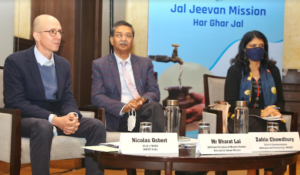
“The smile on the face of that little girl filling her pitcher of water in a village of Ladakh, captured in a random photograph or the image of an equally seemingly happy face of a Rajasthani woman, is the reward enough, and the satisfaction enough of having done the absolutely right thing,” said Bharat Lal, Mission Director, Jal Jeevan Mission.
“Water should not become a limiting factor for socio-economic development and growth,” he said explaining the reason for the mission during an interaction with national media organized by the UN body UNICEF the other day in New Delhi. “The rural economy is getting a boost through the economic activity generated at the grassroots,” he said adding it gave direct and indirect employment to lakhs of people, who in turn spend the money locally and generate demand for goods and services, and this happened during the pandemic too.
Admitting that the task to reach clean, steady, regular, and safe water to all village households in the country was a gigantic one, he said “water must become everyone’s business,” echoing Prime Minister Modi’s thoughts and appealed to the media to become its partner in generating awareness in engaging communities to own, operate and manage their in-village water supply system for ensuring regular and long-term clean tap water supply in rural homes.”
From its side, the central government is ensuring there is no dearth of funds for the mission. The 15th Finance Commission allocated Rs. 26,940 Crore tied grants to rural bodies in 2021-22 for the supply of drinking water, rainwater harvesting and water recycling, and sanitation and maintenance of Open Defecation Free status. There is also an assured fund of Rs. 1.42 lakh Crore for the next 5 years from 2021-22 to 2025-26.
Working closely with the Jal Jeevan Mission since its inception is UNICEF, the global leader promoting and protecting child rights across 190 countries including India, that shares common concerns and views the issue from the perspective of the children.
The availability of safe drinking water through household taps is critical for the well-being and holistic development of children and significantly improves the quality of life of women and girls.
The ultimate aim of UNICEF’s work in water, sanitation, and hygiene (WASH) is to ensure that all children fulfil this right, and that no child is left behind.
Nicolas Osbert, Chief, WASH, UNICEF India said JJM for UNICEF was also like a public health programme and that the UN body was working closely with the government in 17 states – to help in reaching the water in premises, free of contamination, available when needed. “JJM, the largest water supply programme in the world, with particular emphasis on community participation that required enabling a mindset change,” he said.
In his view, water must be treated as a service, and he believed that “we must learn from the community on how best to manage the resources and not thrust and force expert advice. But yes, there is a need for capacity building of villagers on aspects of planning, monitoring, and operating the village water supply systems and maintaining the infrastructure they created.
Osbert too urged the media to “influence behaviour change so that rural communities may achieve the long-term delivery of clean drinking water from taps and also plan, implement, manage, operate & maintain their in-village water supply infrastructure.”
Zafrin Chowdhury, Chief, Communication, Advocacy and Partnership, UNICEF India, alluded to the many aspects and perspectives of the JJM –and said the mission could be viewed from the equity approach (water is a lifeline and not a privilege), there is the gender approach, there is an educational approach, and bringing a change in the mindset of the people, the technology at play and the like.
For this, she urged the media to play an active role in molding public opinion and changing the mindset of the people so that they get involved in this life-transforming issue of our times – the easy availability of safe drinking water for all.

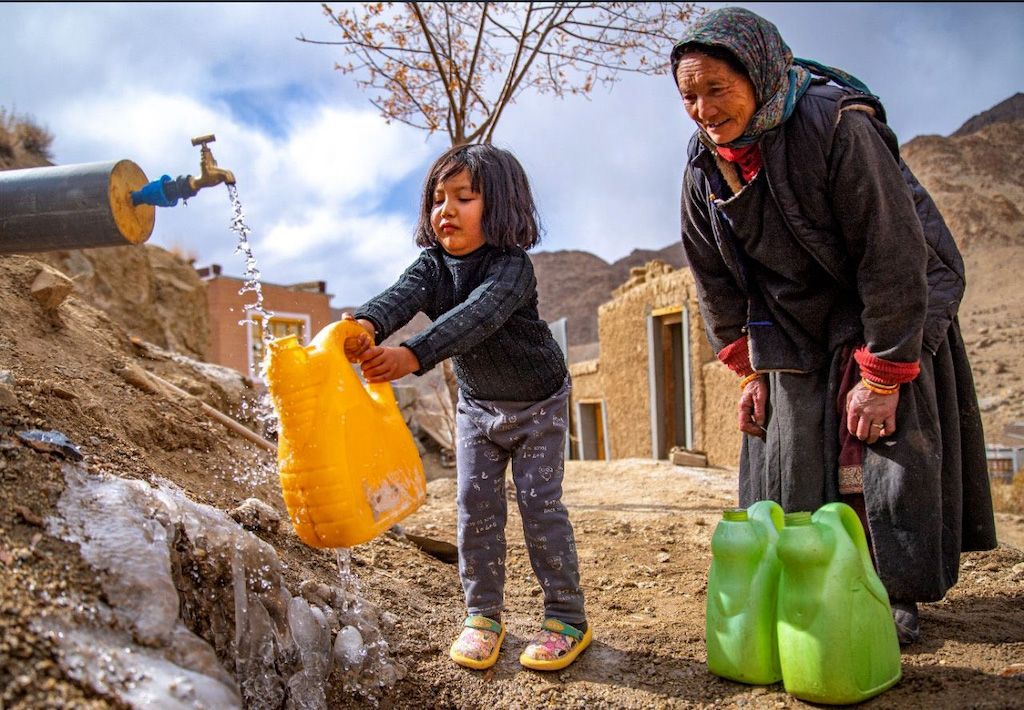
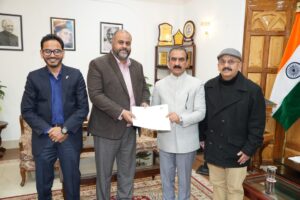
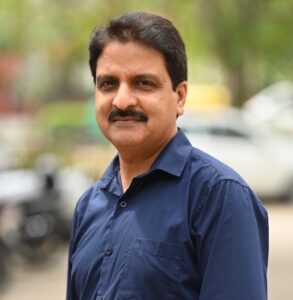
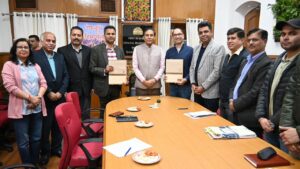
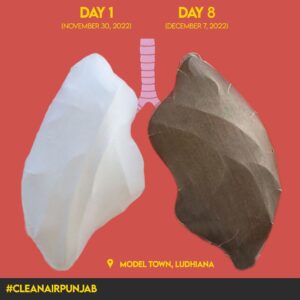

Comments are closed.